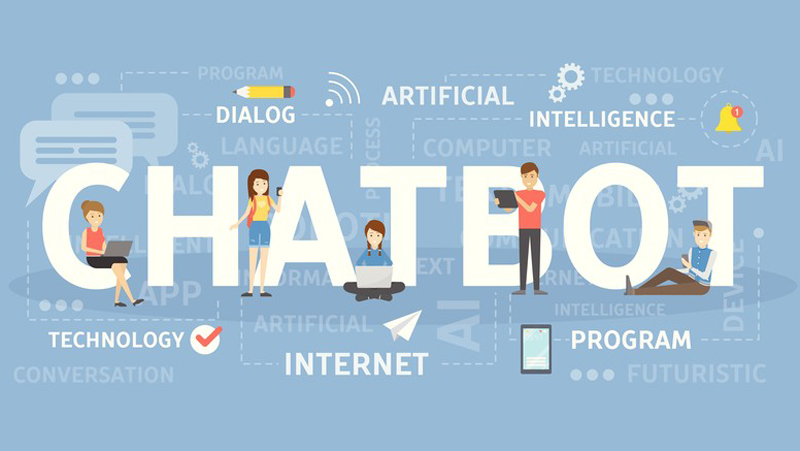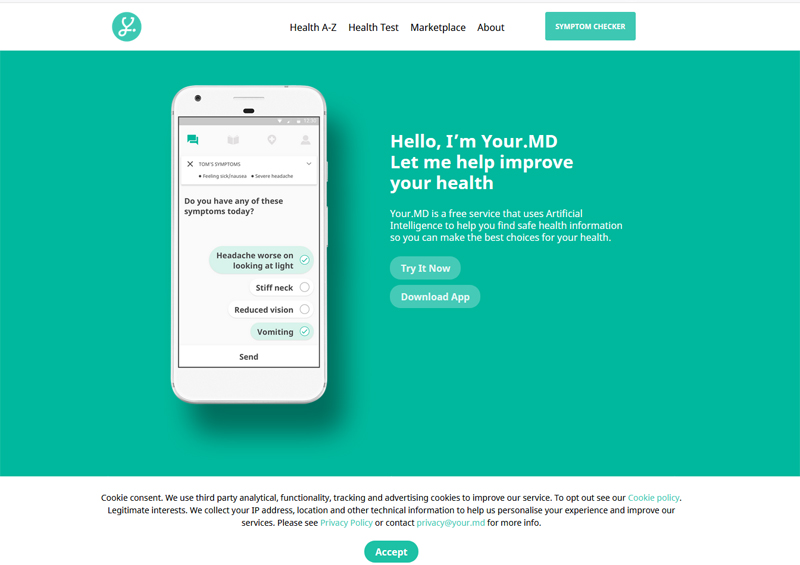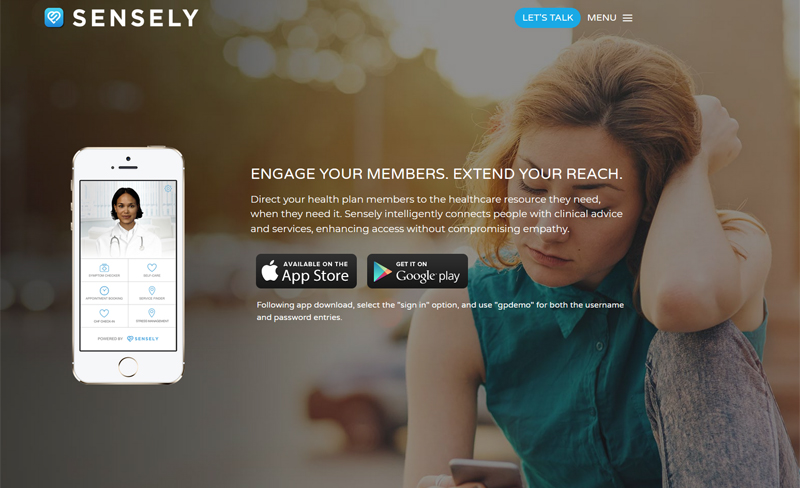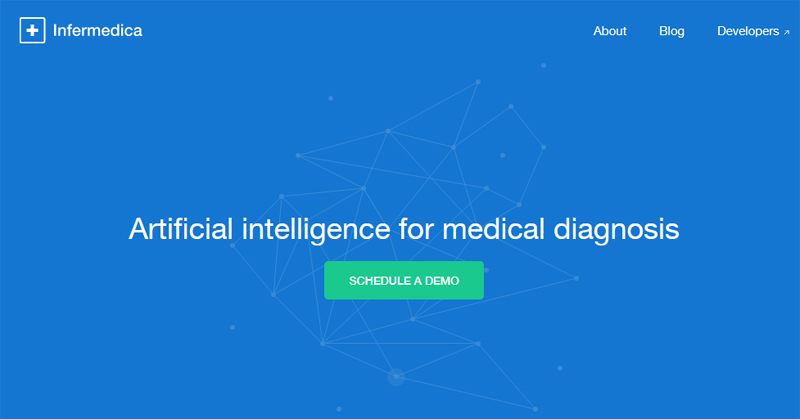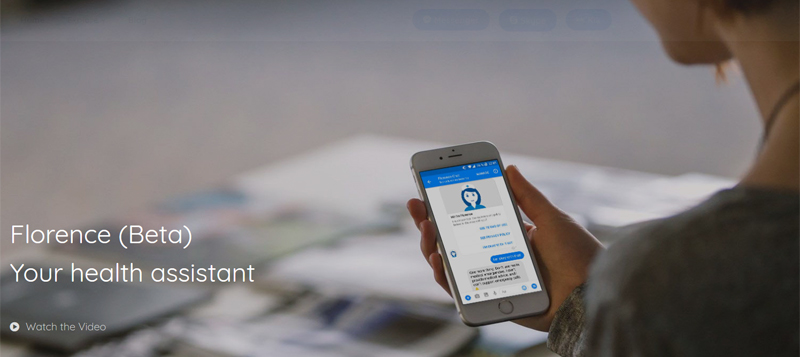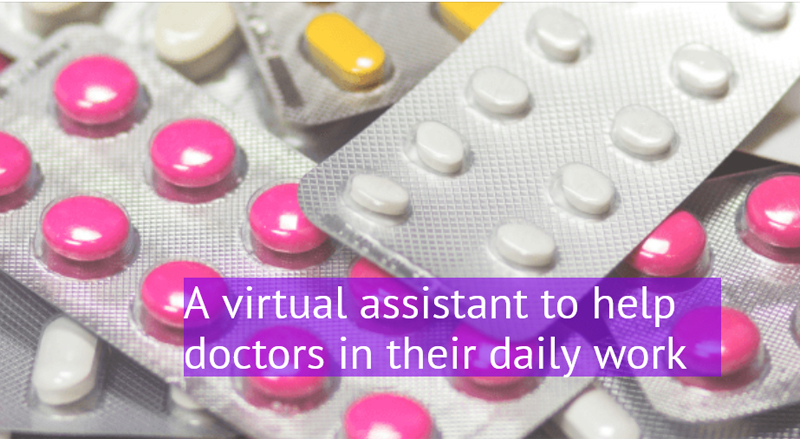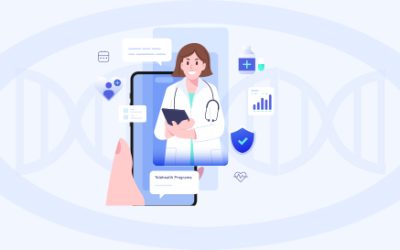Today medical businesses are using various healthcare digital marketing tools to grow and establish their brand. Artificial Intelligence and Machine Learning techniques are now popularly used to provide a more fulfilling user experience. This is where chatbots come in. What is a chatbot? It is a computer-based program designed to stimulate conversation with human users using the internet. Chatbots are implemented in messaging apps and are a powerful tool to reach out to convert, activate and engage with potential patients. With machine learning, chatbots have the ability to create a new response to new input without considering prior programming and only using past data. They use natural language processing to recognize customer requests and offer a relevant answer. Deep learning capability helps the chatbot to improve its response to user interaction. Sentiment analysis is another capability of the chatbot that identifies the user’s concerns and transfers them to a human provider. Advanced chatbots are available now that use these capabilities to provide an authentic and personalized user experience (UX).
Importance of Chatbots for Marketing
Providing healthcare service using bots helps to reduce rising healthcare costs and also improve the quality of patient care. Chatbots can start a chatting session with patients in an interactive manner. This helps potential patients to communicate their symptoms without any human interaction, and the bot can suggest a possible diagnosis to a doctor who can recommend the next step. Chatbots provide the following opportunities:
- Finding leads at the right time: Websites may receive considerable traffic from their promotional efforts, but allleads may not convert into sales. However, with chatbots a potential customer will be prompted when he/she is browsing some particular product or service. The user may not have the intention to make a purchase; but, with chatbots prospective customers could be identified and converted to buyers.
- Better engagement capacity: Once the conversion is done, chatbots can be used to remind a customer from time to time about the product or services or promotional offers etc. These messages go directly to the user’s inbox and there are high chances that the user will open and read the message.
- Collection and analysis of data: Casual comments by potential users provide valuable information. A person’s comments about recent purchases, residential areas, hobbies and preferences can be accumulated andanalyzed to provide customized services. With chatbots, people tend to talk more freely and are even willing to fill in surveys. Such feedback from people also helps to improve service.
- Improve sales: Chatbots are useful tools for driving sales. The conversation between the bot and the customer starts with greetings and when the Chatbot has received all vital data from the users it provides the appropriate product. This then moves on to the order and final payment. The entire interaction is quick and flawless and human error is ruled out.
Ideal Uses for Healthcare Chatbots
The best ways to use medical chatbots are for scheduling appointments, monitoring the health status of patients, and notifying a human nurse immediately if required. This replaces the services of customer service executives. Chatbots can even take care of billing, inventory and insurance claims management. Other functionalities such as chronic illness management, such asType 2 diabetes and mental health management are still under testing.
Examples of Medical Chatbots
- Your.MD: Algorithms trained on authentic medical literature covering more than 1000 medical conditions power this chatbot. It understands common symptoms and provides recommendations. It is accessible via 6 platforms including Facebook Messenger and Skype.
- Sensely virtual nurse: This chatbot uses AI or artificial intelligence to recommend diagnoses based on patient symptoms using a smartphone. Algorithms used in this bot are trained on large volumes of medical content including chronic disease information, medical protocols and so on. This helps it interpret patient symptoms and suggest a suitable diagnosis. Speech, text, images, and video can be used to describe symptoms to the virtual medical assistant, Molly.
- Infermedica: This features the symptom-checker chatbot Symptomate. Common disease symptoms are recognized via natural language processing. The bot then recommends a diagnosis and provides health information related to the diagnosis.
- Buoy Health: This provides personalized and more accurate diagnoses. It was developed by a team of doctors and computer scientists through the Harvard Innovation Laboratory. The algorithm was trained on clinical data from 18,000 medical papers. The chatbot will match the symptoms indicated by the user to all possible conditions and then ask clarifying questions so that they can be narrowed down to the best selection.
- Florence: This is a chatbot nurse that tells patients to take their medicine, gives them instructions if they forget to take a pill, and monitors their health. Florence can also help patients find specialists and book appointments in their area.
- Safedrugbot: This is a messaging app that works on machine learning. It helps doctors take notice of side effects of drugs in breastfeeding mothers and thus helps to keep mothers safe.
Chatbots are set to become an important consideration in healthcare digital marketing. Healthcare businesses can depend on chatbots to capture leads and offer round-the-clock support to patients, providing intelligent answers to their questions. Chatbots could replace databases with medicine interactions and dosage calculators. Functionalities in chatbots should be automated with great care because in the medical sector, even a small mistake can be fatal. Much more research is needed to demonstrate the value and impact of chatbot use on healthcare outcomes.


